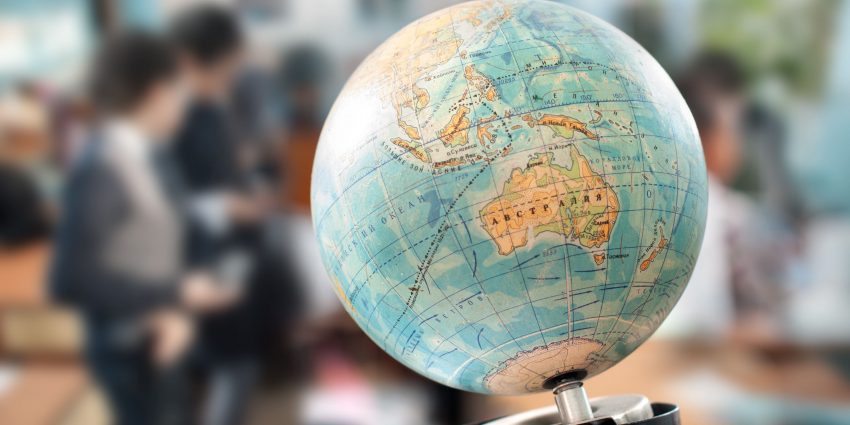Post Views: 3,075
ViewsHow The Coronavirus Affects Mental Health
As strict measures are being enforced to contain the spread of the coronavirus, mental health professionals expect that losing everyday social interactions comes with psychological costs. The longer social distancing continues, the more long-term effects there will be on people’s mental health and behaviors. How will people interact with one another after months of separation? How will social norms in restaurants, retail, and offices change going forward? While many states begin loosening restriction, others have no clear end in sight, which brings about anxiety in many people.
Stay-At-Home Orders
To combat the coronavirus and reduce the number of affected individuals from overwhelming our healthcare system, a stay-at-home order has been issued for nearly every state. While not every state was on lockdown, they are still practicing social distancing.
These social distancing measures prevent people from any nonessential activities beyond going to the grocery store or pharmacy. For many people, being restricted from doing these ordinary tasks is really affecting their mental health. Their sense of normalcy and usual freedoms are gone, leaving them feeling powerless in their homes.
Likewise, schools, offices, restaurants, movie theatres, sports games, etc, are all closed indefinitely. People’s everyday lives and mindsets will be permanently changed after this virus. Some may second guess going to crowded places or concerts due to a fear of large crowds or catching some illness.
Mental Health Experts
New York and New Jersey have been the hardest hit states with hundreds of deaths a day. New York Governor Andrew Cuomo has announced that more than 6,000 mental health professionals have volunteered to provide free mental health services for Americans.
In response to the coronavirus, Cuomo said: “Don’t underestimate the emotional trauma that people are feeling.” While the focus tends to me on physical pain or sickness during a time like this, a person’s mental and emotional health is often not cared for. The stress and trauma from worrying about becoming sick and/or seeing people around that are sick can have lasting effects on someone’s mental health.
Since the coronavirus pandemic is a life or death situation, people shouldn’t be afraid or embarrassed to reach out to a psychologist or another mental health professional to talk about their feelings. If you are not comfortable with that, reach out to a friend or family member to confide in.
Seeking help from a mental health expert has less stigma now than it has had in the past. Many people regularly see or telecommunicate with psychologists for everyday stress, anxiety, or depression. Now with the increasing self-isolation being imposed to thwart the virus, people are feeling hopeless and confused, fearing for their lives and others.
Social Distancing
With many weeks and months to follow of self-distancing, the potential psychological impact may be lasting long-term. Even though social distancing is beneficial for our health and society at this time, it does increase feelings of isolation, loneliness, anxiety, and fear. These emotional triggers can make many mental illnesses infinitely worse.
Psychiatrist, Damir Huremovic of Northwell Health in Manhasset, NY, said: “Health problems associated with social isolation tend to crop up when the situation goes on beyond a few weeks. Walling people off from one another for months means the secondary effects of the pandemic, such as recession, social unrest and unemployment, could trigger unpredictable and widespread mental health challenges.” We already see the effects of severe unemployment only a few weeks into U.S. mitigation.
People With Existing Mental Illnesses
People who already have mood and personality disorders, behavioral disorders like OCD and ADHD, are particularly susceptible to worsening mental health during the coronavirus. The pandemic is causing these individuals to feel heightened anxiety, and not in control of their lives.
The most common type of anxiety is Generalized Anxiety Disorder (GAD), which affects approximately 6 million Americans. Experiencing mild feelings of anxiety and worry is normal, however, people with GAD will feel a sense of impending doom over events they can’t control. For these individuals, the coronavirus may create an exacerbated fear of catching the virus.
During this time, people are more likely to catastrophize, which results in behaviors like panic buying. We are all scared of the unknown associated with a new virus such as this. However, what is important to know is when you need help or to speak to a mental health professional, or when a loved one needs to.
References:
https://www.psycom.net/coronavirus-mental-health
https://www.marketwatch.com/story/we-can-get-through-this-how-to-manage-your-mental-health-during-the-coronavirus-pandemic-2020-03-30
2 comments on How The Coronavirus Affects Mental Health
Leave a Reply
How The Coronavirus Affects Mental Health
By nurseadvisorofficial
As strict measures are being enforced to contain the spread of the coronavirus, mental health professionals expect that losing everyday social interactions comes with psychological costs. The longer social distancing continues, the more long-term effects there will be on people’s mental health and behaviors. How will people interact with one another after months of separation?














HAVE YOU BEEN RIPPED OF YOUR COINS.
Have you gotten your bitcoins stolen from your wallet or invested in an ICO that turned out to be a scam, you are not alone because this happened to me too. I initially lost $96,000 in just less then five months from Fake investment scam company. My friend referred me to a hacker who helped me recover all my funds within 3 days. I’m speaking up to improve awareness of these cryptocurrency thieves and help as much as i can to reduce victims to the minimum. If you have been a victim, Simply contact Them ( MorrisGray380 at Gmail Dot Com )or whatsapp ( +1 607 698 0239 )
Late last month, I unintentionally fell for a cryptocurrency fraud. A Facebook imposter convinced me through a phishing scam of how I would make a sizable profit from a legitimate cryptocurrency company, which he claimed enabled traders to invest and make sizable profits. They took advantage of me and made off with $316,000 worth of cryptocurrency. As this was money I had worked so hard to obtain, I was shocked and uncomfortable. After reading favorable articles and internet reviews, I learned that “THE LION CYBER SECURITY COMPANY” is a licensed recovery firm that specializes in all types of hacking and cryptocurrency recovery. I immediately struck up a dialogue with the Experts, and I was able to get my money back. This is a token of appreciation to them, If you are a victim looking for an ethical hacker to help you get your money back, contact THE LION CYBER SECURITY COMPANY through any of the contact information listed below, Email; lioncyberrr@gmail.com WhatsApp; +1 (929) 660-4485